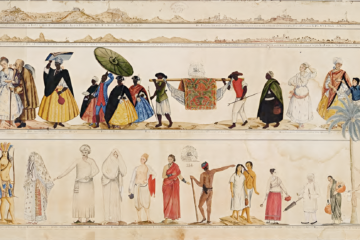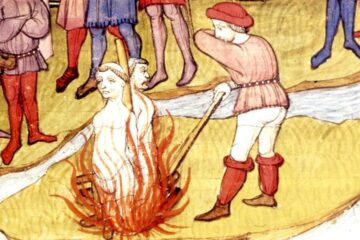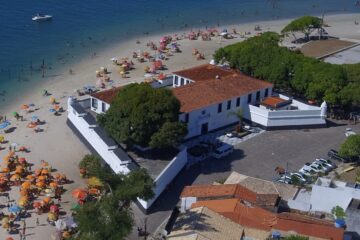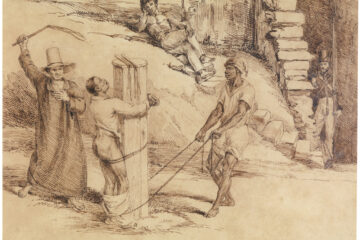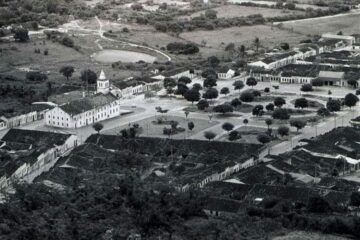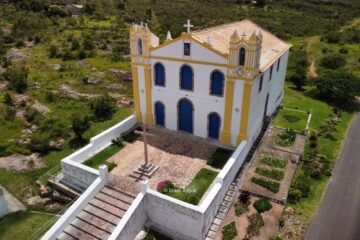Biography of the Maranhão Singer Alcione
Alcione, born on November 21, 1947, in São Luís, Maranhão, lived her youth in Rio de Janeiro and began her professional career at the age of 20. Since she was young, influenced by her father, a police officer and member of his corporation’s band, João Carlos Dias Nazareth, Alcione was immersed in the Maranhão music scene, performing for the first time at the age of twelve.
Education and Early Career
She graduated in teaching after completing normal schooling. Despite her clear talent for music, Alcione worked as a primary school teacher for two years in a school in Maranhão. After being dismissed for teaching her students how to play the trumpet, she decided to dedicate herself entirely to music.
Success and Recognition
Since then, Alcione has achieved many successes in her career, becoming a winner of a Latin Grammy and the Best Popular Singer award from the Brazilian Academy of Letters.
During the 1960s and mid-1970s, she began performing in bars in the Maranhão region until she decided to move to Rio de Janeiro in search of better opportunities. She moved to the city in 1967, working at TV Excelsior. After touring countries in South America, she lived in Europe for two years. She returned to Brazil in 1972, and three years later, received her first gold record with the LP “A Voz do Samba” (1975).

Musical Influences
Identifying with samba, she became an ardent supporter of Mangueira, a school that brought together great samba musicians in the capital of Rio de Janeiro. She earned the nickname Marrom, by which she is also known. Her first major hit was the song “Não Deixe o Samba Morrer”, by Edson and Aluísio, in the repertoire of her first LP.
Alcione has always been influenced by a variety of musical styles that shaped her journey. Samba is, of course, her primary genre, but she has also incorporated elements of MPB, jazz, and other Brazilian rhythms, enriching her repertoire and making her a unique artist. Her influences include great names such as Jorge Ben Jor, Elis Regina, and Caetano Veloso, who contributed to her musical formation and style.

Biografia da cantora maranhense Alcione
Awards and Achievements
In more than three decades of career, she has won awards, including nineteen gold records, two platinum records, and one double platinum record. For two consecutive years, she won the Tim award for best samba singer in 2004 and 2005.
In addition to “Não Deixe o Samba Morrer”, Alcione has performed numerous acclaimed songs, such as: “Sufoco”, “Gostoso Veneno”, “Rio Antigo”, “Nem Morta”, “Garoto Maroto”, “A Profecia”, “Delírios de Amor”, “Uma Nova Paixão”, “Depois do Prazer”, “Enquanto Houver Saudade”, “Estranha Loucura”, “Faz Uma Loucura Por Mim”, “A Loba”, “Retalhos de Cetim”, “Qualquer Dia Desses”, “Pode Esperar”, “O Que Eu Faço Amanhã”, “O Surdo”, “Pior É Que Eu Gosto”, “Meu Vício e Você”, “Pandeiro É Meu Nome”, “Você Me Vira a Cabeça”, “Quem de Nós”, “Mineira”, “Meu Ébano”, among many others.
Personal Life
Currently, Alcione resides in the Village Marapendi condominium, located in the Recreio dos Bandeirantes neighborhood of Rio de Janeiro.
Awards and Honors for Alcione
Considered one of the prides of Maranhão, singer Alcione has received several honors, not only in her hometown but in various parts of Brazil. Among the most important, it is worth mentioning that Alcione became the name of an important theater located in the historic center of São Luís; in 2003, the Elevado Alcione Nazareth, a viaduct connecting the neighborhoods of Ipase and Vila Palmeira, was inaugurated in São Luís. In Rio de Janeiro, she was the theme of a samba-enredo in 1994 by the samba school Unidos da Ponte, with the theme “Marrom da Cor do Samba”, although the singer declares herself a lover of the samba school Mangueira.
Alcione has also received numerous awards throughout her career, including several gold and platinum records. Since the beginning of the Tim Music Award, she has frequently been voted the best samba singer, becoming part of the ABC of Music, composed of: A: Alcione, B: Beth Carvalho, and C: Clara Nunes.
Alcione’s Discography
Universal Music / Philips
- A Voz do Samba (1975)
- Morte de um Poeta (1976)
- Pra Que Chorar (1977)
- Alerta Geral (1978)
- Gostoso Veneno (1979)
- E Vamos à Luta (1980)
- Alcione (1981)
- Dez Anos Depois (1982)
Sony BMG / RCA
- Vamos Arrepiar (1982)
- Almas e Corações (1983)
- Da Cor do Brasil (1984) (Gold)
- Fogo da Vida (1985) (Gold)
- Fruto e Raiz (1986) (Platinum)
- Nosso Nome: Resistência (1987) (Platinum)
- Ouro & Cobre (1988) (Gold)
- Simplesmente Marrom (1989) (Gold)
- Emoções Reais (1990)
- Promessa (1991)
- Pulsa, Coração (1993) (Gold)
- Brasil de Oliveira da Silva do Samba (1994) (Gold)
- Profissão: Cantora (1995)
- Tempo de Guarnicê (1996)
Universal Music / Polygram
- Valeu – A Tribute to the New Generation of Samba (1997) (Gold)
- Celebração (1998) (Gold)
- Claridade (1999) (Gold)
- Nos Bares da Vida (2000) – live (Platinum)
- A Paixão Tem Memória (2001) (Gold)
Indie Records
- Ao Vivo (2002) (Platinum)
- Ao Vivo 2 (2003) (Platinum)
- Alcione – Duets (2004)
- Faz Uma Loucura por Mim (2004) (Platinum)
- Faz Uma Loucura por Mim – Ao Vivo (2005)
- Novo Millenium – Alcione (2005)
- Maxximum – Alcione (2005)
- Alcione e Amigos (2005)
- Uma Nova Paixão (2005) (Gold)
- Uma Nova Paixão – Ao Vivo (2006) (Gold)
- Novelas (2006)
- Collections – Great Successes of Alcione (2007)
- De Tudo Que Eu Gosto (2007)
- Rarities (2008)
This is a brief biography of the talented Maranhão singer Alcione, who continues to captivate the audience with her music and charisma.
Publicações Relacionadas
Musical Style and History of Samba de Roda
João Gilberto: The Father of Bossa Nova
Biography of Dominguinhos, the accomplished accordionist
Biography of Maria Bethania
Music and Rhythms of the Brazilian Northeast
History of Bossa Nova - When Bossa Nova conquered the world
The Origin and History of Carnival in Brazil
Carlinhos Brown: Biography of a Percussion Legend
The History of Forró: Origins and Development
Elba Ramalho: A Journey Through Music History
Biography of Luiz Gonzaga
Biography of Carmen Miranda
Olodum with Michael Jackson in Salvador de Bahia
Gilberto Gil - Biography, history and musical legacy
Biography of Simone Bittencourt
Jackson do Pandeiro: The King of Rhythm and his Music
Biography of Ivete Sangalo
Biography of Os Novos Baianos
This post is also on:
![]() Português
Português ![]() English
English ![]() Deutsch
Deutsch ![]() Español
Español ![]() Français
Français


